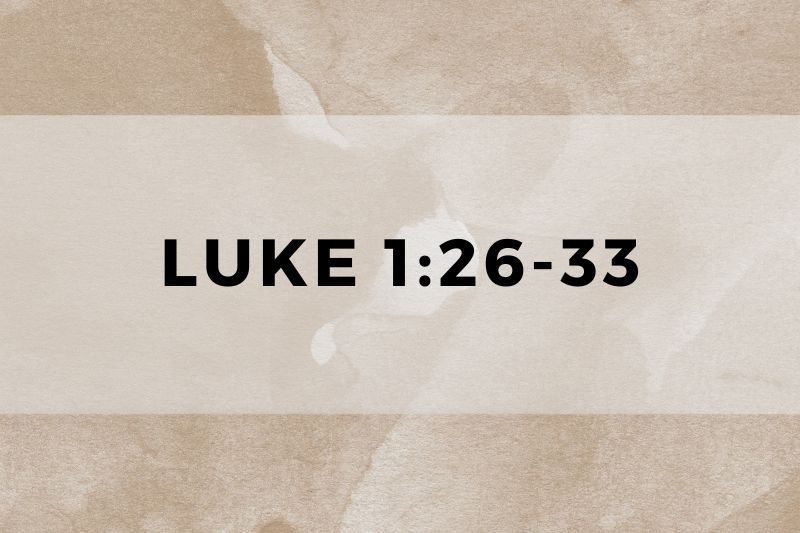
Luke 1:26-33
26 In the sixth month of Elizabeth’s pregnancy, God sent the angel Gabriel to Nazareth, a town in Galilee, 27 to a virgin pledged to be married to a man named Joseph, a descendant of David. The virgin’s name was Mary. 28 The angel went to her and said, “Greetings, you who are highly favored! The Lord is with you.” 29 Mary was greatly troubled at his words and wondered what kind of greeting this might be. 30 But the angel said to her, “Do not be afraid, Mary; you have found favor with God. 31 You will conceive and give birth to a son, and you are to call him Jesus. 32 He will be great and will be called the Son of the Most High. The Lord God will give him the throne of his father David, 33 and he will reign over Jacob’s descendants forever; his kingdom will never end.”
Luke 1:26-33: Verse-by-Verse Analysis
Verse 26: “In the sixth month of Elizabeth’s pregnancy, God sent the angel Gabriel to Nazareth, a town in Galilee,”
This verse sets the scene. It tells us the timing: the sixth month of Elizabeth’s pregnancy. Elizabeth is Mary’s relative. Gabriel, an important angel, is sent by God. The location is Nazareth, a small town in Galilee.
Verse 27: “to a virgin pledged to be married to a man named Joseph, a descendant of David. The virgin’s name was Mary.”
Here, we meet Mary. She is a virgin, engaged to Joseph. Joseph is from the lineage of David, which is significant for fulfilling prophecies. Mary’s virginity is crucial for the miraculous nature of Jesus’ birth.
Verse 28: “The angel went to her and said, ‘Greetings, you who are highly favored! The Lord is with you.'”
Gabriel greets Mary with respect and honor. He calls her “highly favored,” indicating God’s special grace upon her. He reassures her that God is with her.
Verse 29: “Mary was greatly troubled at his words and wondered what kind of greeting this might be.”
Mary is confused and disturbed by the angel’s greeting. She is trying to understand what it means. Her reaction shows her humility and humanity.
Verse 30: “But the angel said to her, ‘Do not be afraid, Mary; you have found favor with God.'”
Gabriel comforts Mary. He tells her not to fear. He reassures her that she has found favor with God. This favor is a divine blessing.
Verse 31: “You will conceive and give birth to a son, and you are to call him Jesus.”
Gabriel delivers the core message. Mary will conceive a son. She is to name him Jesus. The name Jesus means “The Lord saves.”
Verse 32: “He will be great and will be called the Son of the Most High. The Lord God will give him the throne of his father David,”
Gabriel describes Jesus’ future. He will be great and called the Son of the Most High, indicating his divine nature. He will inherit David’s throne, fulfilling Jewish prophecy.
Verse 33: “and he will reign over Jacob’s descendants forever; his kingdom will never end.”
Jesus’ reign will be eternal. He will rule over the descendants of Jacob, meaning the people of Israel. His kingdom is everlasting, unlike any earthly kingdom.
